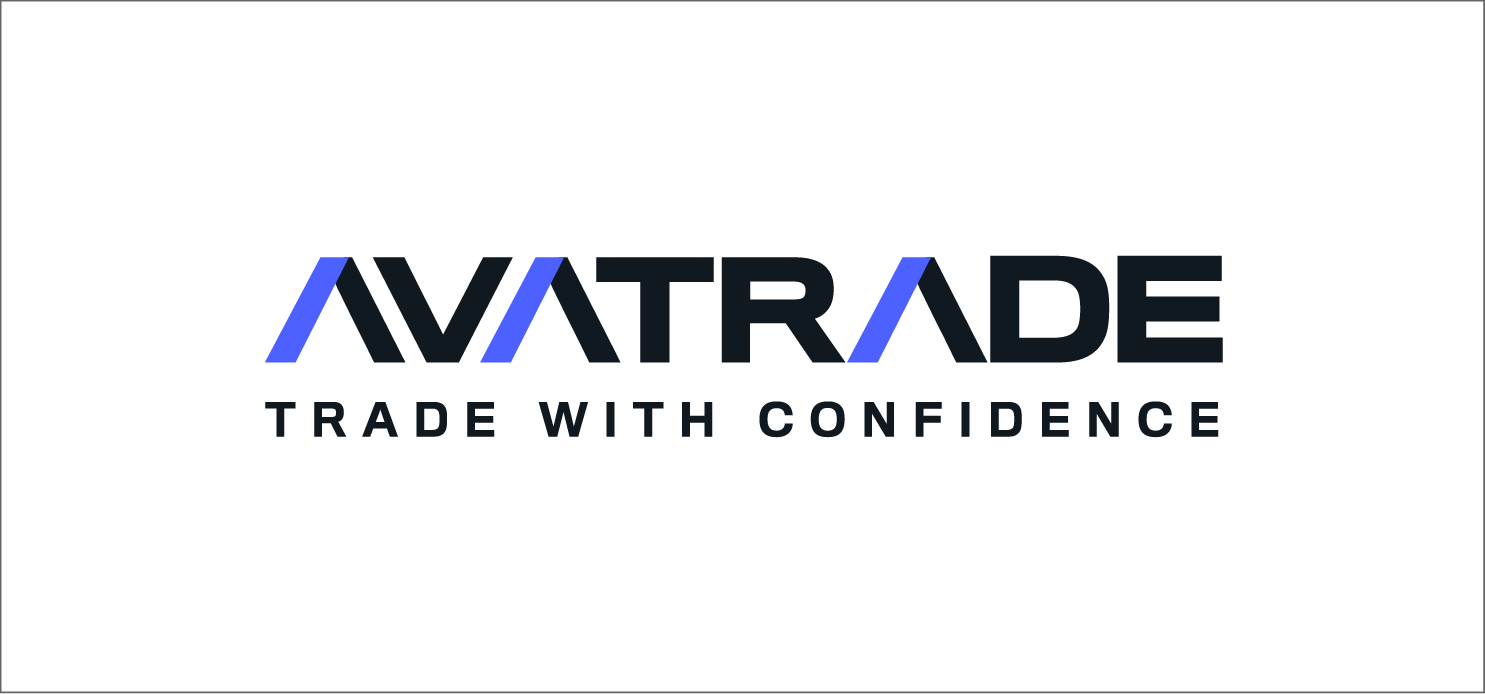10 Best CFD Brokers and Trading Platforms in the UK in 2025
All products and services featured are independently selected by WikiJob. When you register or purchase through links on this page, we may earn a commission.
- A List of the Best CFD Brokers and Trading Platforms in the UK in 2025
- Comparison of the Best CFD Brokers and Trading Platforms in the UK in 2025
- Description of the Best CFD Brokers in the UK for January 2025
- What Is a CFD Broker?
- What Is CFD Trading?
- How to Choose a CFD Broker?
empty
empty
empty
empty
empty
- How Does CFD Trading Work?
- How Does Leverage Work in CFD Trading?
- How to Use CFDs for Hedging
- How to Profit From CFD Trading
- Benefits of CFD Trading
- Frequently Asked Questions
- Final Thoughts
A List of the Best CFD Brokers and Trading Platforms in the UK in 2025
Comparison of the Best CFD Brokers and Trading Platforms in the UK in 2025
Regulation ASIC, FCA | Trading Platforms Plus500 WebTrader | Minimum Deposit $100 | |||
Regulation FCA, DFSA, CySEC, BaFIN, ASIC, CMA, SCB | Trading Platforms MT4, MT5, cTrader, TradingView | Minimum Deposit $0 | |||
Regulation FCA, ASIC, CySEC | Trading Platforms Proprietary trading platform and app | Minimum Deposit $50 | |||
Regulation FCA | Trading Platforms Spreadex Platform & App | Minimum Deposit £0 | |||
Regulation ASIC, FSCA, Central Bank | Trading Platforms MT4, MT5, AvaTradeGO | Minimum Deposit $100 | |||
Regulation FCA, ASIC, CFTC, NFA | Trading Platforms IG Web Platform, MT4, L2 Dealer | Minimum Deposit $250 | |||
Regulation FCA, CySEC | Trading Platforms xStation, MT4 | Minimum Deposit $0 | |||
Broker Saxo | Regulation FCA and others | Trading Platforms SaxoTraderGo, SaxoTraderPRO | Minimum Deposit None | ||
Broker ActivTrades | Regulation FCA | Trading Platforms MT4, MT5 | Minimum Deposit $1 | ||
Regulation FCA | Trading Platforms MT4 | Minimum Deposit $200 |
61% of retail investor accounts lose money when trading CFDs with eToro. You should consider whether you understand how CFDs work, and whether you can afford to take the high risk of losing your money.
Description of the Best CFD Brokers in the UK for January 2025
When it comes to your money, you want it to be in reliable hands. Having introduced important aspects for you to consider, here is a summary guide to the best CFD trading platform in the UK:
1. Plus500
Pros
- No buy/sell commissions and tight spreads
- Leverage of up to 1:30
- FREE unlimited Demo
- 2,800+ trading instruments
- Real-time quotes and advanced analytical tools
- Fast and reliable order execution
Cons
- No API integrations
- No social copy trading
Best for: Experienced traiders
With over 2,000 stocks, Plus500 is an easy-to-use CFD trading platform with lots of educational material, a demo account and customer service 24/7.
There is a £100 minimum deposit but no fees for:
- Deposits
- Real-time quotes
- Dynamic charts and graphs
- Live share CFD prices
- Opening and closing of trades
- Rolling position
Plus500 uses its own platform that comes with a trading app.
Though Plus500 is very user-friendly, CFDs are 'complex financial products', thus the platform is not suitable for beginners/inexperienced traders.
It is regulated by the FCA and listed on the London Stock Exchange.
2. Pepperstone
Pros
- Extensively regulated
- No minimum deposit
- Low fees and mostly free withdrawals
- Good customer service
Cons
- No investor protection for clients outside UK, EU and EEA
- Withdrawal fee for international bank wires
- CFDs only
Best for: Tight spreads and low fees
Pepperstone requires no minimum deposit and offers low trading fees.
It offers fantastic financial market analysis and trading ideas.
While the educational tools are adequate, the news flow is basic.
Customer service is available via phone, email and live chat, and all queries are answered promptly.
It is regulated by the FCA, ASIC, CySEC, BaFin, DFSA, CMA, SCB.
Pepperstone uses TradingView, MetaTrader 4, MetaTrader 5 and cTrader CFD trading platforms. MetaTrader is considered one of the best CFD trading platforms.
It provides CFD access to 25 major stock indices, more than 900 shares CFDs, 21 cryptocurrencies (Pro clients in UK only), 90+ forex, 100+ ETF and 17 top commodities, all in CFD form.
3. eToro
Pros
- Regulated by FCA, ASIC
- 0% commission on stocks
- Social and copy trading
Cons
- More expensive than most of its competitors
- No meta-trader platforms
eToro features include:
- Access to over 800 stocks
- No commission to pay (0% commission applies to stock investment, spreads will be applied to CFD products)
- $50 minimum deposit (eToro operates in USD only)
- Regulated by the FCA, CySEC and ASIC
eToro provides a wide range of assets for CFD trading, including stocks, commodities, forex and indices. This diversity allows traders to explore various markets and strategies.
Trading CFDs on eToro involves certain costs, such as spreads (the difference between the buy and sell prices), overnight fees (for holding a leveraged position overnight), and in some cases, withdrawal and inactivity fees. It's important to be aware of these costs when trading.
The CFD trading platform is native to eToro and has been designed with new traders in mind.
61% of retail investor accounts lose money when trading CFDs with eToro. You should consider whether you understand how CFDs work, and whether you can afford to take the high risk of losing your money.
4. Spreadex
Pros
- Award-winning mobile app
- Extensive US shares and ETFs
- Extended hours trading available
- Full TradingView integration
- Free Financial Tomes subscription with qualifying deposit
- No minimum deposit required
- No inactivity fees
Cons
- Does not offer MetaTrader 4 (MT4)
- Limited to CFDs and spread bets
- No physical share dealing
Spreadex distinguishes itself as one of the premier CFD brokers and trading platforms, especially within the UK market.
Spreadex offers a diverse selection of CFD trading options, encompassing forex, indices, stocks, commodities, and more. This wide range of instruments allows traders to speculate on price movements across different markets, making it easier to diversify trading strategies and hedge against risk.
Spreadex’s trading platform is designed with the latest technology to ensure reliability and speed. It features robust charting tools, integrated with TradingView, which provides advanced technical analysis capabilities. This setup is ideal for traders who rely on detailed chart analysis and technical indicators to make informed trading decisions.
Both the Spreadex web platform and mobile app are designed for ease of use. They offer a clean, intuitive interface that simplifies the trading process for beginners while still providing the advanced features that experienced traders require. This balance makes it an excellent choice for traders at all levels of experience.
Spreadex is known for its competitive spreads and low trading costs, which can significantly impact profitability, especially for frequent traders. The platform does not charge commissions on CFD trades, relying instead on the spreads between the buy and sell prices, which are kept as narrow as possible.
Spreadex prides itself on offering excellent customer service, with a dedicated support team available to assist traders. This support includes technical help, trading guidance, and account management services, ensuring that traders can get personalized assistance whenever needed.
For those new to CFD trading or looking to expand their knowledge, Spreadex provides a variety of educational resources, including trading guides, webinars, and video tutorials. These materials are designed to help traders understand the markets better and develop more effective trading strategies.
Spreadex is regulated by the Financial Conduct Authority (FCA), one of the most respected financial regulatory bodies globally. This regulation ensures that Spreadex adheres to the highest standards of financial practice and client protection, giving traders confidence in the security of their investments.
5. AvaTrade
Pros
- Worldwide regulated
- Multiple platforms – MT4, MT5, etc.
- Negative balance protection
- 20% welcome bonus
- Educational content
- Wide rage of payments methods
- Fixed spreads
Cons
- You can’t buy stocks
- Quarterly and annual inactivity fees
- Custumer support is not available 24/7
- No bonus for EU based clients
- No US clients accepted
- Imitated crypto assets
AvaTrade is a well-known CFD (Contract for Difference) broker that offers a wide range of financial instruments for trading.
As one of the best CFD trading platforms, AvaTrade provides access to a diverse array of CFD trading options, including forex, stocks, indices, commodities, cryptocurrencies, ETFs, and bonds. This variety allows traders to diversify their portfolios and explore different markets.
AvaTrade is regulated in several jurisdictions around the world, including Europe, Australia, South Africa, and Japan. This regulatory oversight adds a level of security and trustworthiness, ensuring that the broker operates under strict guidelines and standards.
Similar to other CFD brokers, AvaTrade offers leverage, which allows traders to open larger positions with a smaller amount of capital. However, it’s important to remember that while leverage can amplify profits, it also significantly increases the risk of losses.
AvaTrade offers a variety of trading platforms, including MetaTrader 4 and 5, AvaTradeGO (its mobile app), and AvaOptions (for Forex and options trading). The platforms are designed to cater to both novice and experienced traders, providing advanced charting tools, analytical tools, and automated trading options.
The CFD broker provides an extensive range of educational materials, such as webinars, video tutorials, eBooks, and market analysis. This is particularly helpful for beginners or those looking to expand their trading knowledge.
6. Vantage Markets
Pros
- Regulated by FCA, ASIC and VFSC
- Low forex fees
- No inactivity fee
- No withdrawal or deposit fee
- Good MetaTrader add-ons
- Social trading
Cons
- Not available to US clients
- CFD trading carries risk
- $50 is needed to start trading
Vantage Markets was founded in 2008 to be a transparent forex broker and has grown to include 40+ forex pairs and over 1,000 different assets including EFTs.
As a CFD broker, Vantage Markets is well-regarded and considered safe thanks to regulation by ASIC, FCA and VFSC.
Vantage Markets offers access to the markets through the popular MT4 and MT5 platforms, and a feature-stuffed mobile app.
There are three account types:
- Standard STP. Perfect for novices, this is a no-commission account that works across all trading instruments, with a minimum spread of 1.0 pips. The minimum deposit is $50.
- Raw ECN. Designed for more experienced traders, this account charges commission at $3 per lot per side but the spreads start at 0.0 pips. The minimum deposit is $500.
- Pro ECN. This is for professional, high volume traders, and offers commission at $1.5 per lot per side, with spreads from 0.0 pips. The minimum deposit is $20,000.
Vantage Markets is seen as a good, reliable broker that offers social and copy trading – without being prohibitively expensive in terms of non-trading costs or commission.
The CFDs offered by Vantage Markets's trading platform are largely based around blue chip companies in the EU, UK and US.
There are more than 70 EU/UK company shares available as online CFDs, with a minimum trade of 10 Euros (for UK/EU shares CFD) and a minimum trade commission of 6 USD (for US shares CFD), and these can be traded on the MetaTrader 5 platform.
Vantage Markets offers 1:20 leverage for all shares CFDs
There are more than 50 US companies available as share CFDs, which can be traded on MetaTrader 4 and 5.
Deposits are free, and withdrawals are too (for withdrawals to electronic wallets or credit/debit cards).
7. IG
Pros
- Highly regulated
- MetaTrader 4 (MT4)
- Over 10,000 instruments
- Available in the UK and US
- 24/7 customer support
Cons
- High fees
- No deposit compensation scheme for US accounts
- No copy trading
- Inactivity fees
IG invented spread betting in 1974 and today is the world’s leading online trading provider with more traders trusting them with their money than anyone else
IG is authorised and regulated by the FCA and provides traders access to over 18,000 markets. IG offers more 24-hour indices than any other provider, and extended hours on over 70 key US stocks
For those who prefer to own the underlying asset, IG offers access to over 13,000 global shares and ETFs, or a wealth portfolio managed by one of their experts.
Benefits of using IG as your CFD platform:
- Advanced platform and charting – L2 dealer, ProRealTime and MT4
- Demo account
- Extended trading hours
- Extensive range of products
- Daily expert analysis & educational resources
- Round-the-clock customer service
- Negative balance protection for retail clients
Based on revenue (published financial statements, October 2022). 24/7 excludes the hours from 10 pm Friday to 8 am Saturday (UK time), and 20 minutes just before the weekday market opens on Sunday night.
8. Saxo
Pros
- Heavily regulated
- Good product portfolio
- Low forex fees
- No withdrawal or inactivity fees
Cons
- Does not accept US clients
- High fees for options, futures and bonds
Saxo is widely recognized as one of the best CFD brokers, offering a broad and sophisticated trading environment.
Saxo provides a vast array of CFD trading options, with access to over 8,000 instruments. This includes more than 7,600 single stocks and 1,100 ETFs, covering various global markets. Saxo also offers CFDs on indices (over 35 different indices), forex (7 major pairs), government bonds (8 types), commodities (20 different commodities), and index options (including SPX, DXJ, ESX, and OESX).
Saxo is known for its tight spreads and low commissions, which are especially advantageous for active traders. This pricing structure makes trading more cost-effective, allowing traders to maximize their potential returns.
Saxo offers tiered account levels, including Platinum and VIP tiers, which provide even lower prices and additional benefits for high-volume traders. This tiered system is designed to reward more active traders with better pricing and exclusive services.
Saxo accommodates traders with US extended hours trading, which allows for trading beyond the standard market hours. This feature is particularly useful for those who wish to trade in response to news and events that occur outside of regular trading sessions.
Saxo’s platforms, SaxoTraderGO and SaxoTraderPRO, are equipped with sophisticated tools and features that support effective CFD trading. These include comprehensive charting tools, risk management options, and real-time data, all accessible via an intuitive interface suitable for both novices and experienced traders.
As a globally regulated broker, Saxo ensures a high level of security and adherence to international standards, offering traders peace of mind when it comes to the safety of their investments.
Saxo provides extensive educational resources and analytical tools that help traders make informed decisions. These include detailed market analysis, educational guides, and webinars, which are invaluable for both new and experienced traders.
9. XTB
Pros
- Regulated by the FCA
- Low forex fees
- Fast withdrawal and deposit with no fee
- Live chat customer service
Cons
- No US clients
- Limited product portfolio
- High fees for stock CFDs
Best for: International trading
XTB is a trusted all-around broker, established in 2002. It is regulated by the FCA and listed on the Warsaw Stock Exchange.
There is no minimum deposit for opening an account.
XTB uses its xStation 5 platform, which offers good customisation, search functions and modern design.
As a CFD platform, it has all the standard educational resources and research tools.
It has over 2,000 stocks, though all cryptocurrency trading is paused on weekends.
Overall, the only negatives of XTB are that its fundamental data is limited, and there are high fees for some CFD trades.
CFDs are complex instruments and come with a high risk of losing money rapidly due to leverage. 75% of retail investor accounts lose money when trading CFDs with this provider. You should consider whether you understand how CFDs work and whether you can afford to take the high risk of losing your money.
10. ActivTrades
Pros
- No minimum first-time deposit
- Optimal trading execution
- More than 1,000 CFDs
- State-of-the-art trading infrastructure
- Customer support on 14 languages via email, chat and telephone
Cons
- No copy trading
- Not available for US clients
- No bonus for EU based clients
ActivTrades is a traditional CFD broker and has been trading for more than 20 years on 140 markets. ActivTrades is authorized and regulated by the FCA, CSSF and SCB.
Its strong points, as one of the best CFD trading platforms, include:
- No minimum first-time deposit
- No commissions
- Several payment methods for deposits and withdrawals
- Tight spreads from 0.5 pips
It offers one of the best execution speeds in the industry with low latency below 0.004s.
It utilizes the most advanced technology to improve users' trading efficiency – users can automate trades, build integrations and create CFD trading apps using ActivTrades' market-leading CFD and spread betting technology.
Exceptional trading infrastructure is available on ActivTrader and MetaTrader 4 and 5.
ActivTrades invests deeply in specially developed educational materials for its clients – including webinars, regular outlooks, manuals, etc.
Type of offers: ActivTrades focuses on well-developed products in its trading portfolio. Customers can choose from over 1,000 CFD or spread betting instruments across forex, indices, shares, commodities, financials and ETFs.
It also offers investing solutions for its institutional partners.
Spread betting allows UK residents ONLY to trade the prices of financial instruments, including forex, indices, commodities and LSE shares.

What Is a CFD Broker?
A CFD, or contract for difference, differs from stocks as you do not own any part of the underlying asset.
They are cash-settled, which means the brokerage will pay out the difference between the opening and closing prices of an underlying stock (or other instrument) rather than delivering any physical goods.
They're designed to replicate the benefits of owning the underlying instrument, without having to actually own it.
The advantages of using a CFD brokerage are that:
- As you are not classed as a full-time trader, any money you make from a CFD trade is tax-exempt
- Any short-term financial rewards may allow you to make bigger long-term investments
- You have the potential to take a position in a market and gain profit regardless of fall or rise
As trading involves your money, you need to make sure that you find a reputable broker that suits all your needs.
What Is CFD Trading?
CFDs only require a small deposit when opening a position (to cover potential losses), as opposed to having to pay in full for a share.
This means that CFDs can offer tremendous leverage, which can magnify gains and losses. Any short-term financial rewards may allow you to make bigger long-term investments.
It also gives the investor the ability to speculate the price of movement over a short-term, for stocks, commodities and forex.
CFD trading is an advanced trading strategy that is not allowed in the US.
How to Choose a CFD Broker?
So, what should you look for when choosing a CFD broker?
Is the Broker Regulated?
This is the most fundamental piece of information you need. As a UK trader, you want your broker to be regulated by the Financial Conduct Authority (FCA).
Other EU based authorities will also be governed by similar organizations, but as Brexit's full effect is still to take place, it is advisable to find one that is FCA regulated.
Being listed on the stock exchange is also desirable. It suggests that the broker is fully transparent with their financial records. These financials should also be made available for public viewing.
What Are the Trading Fees?
This is the commission charged by the broker when opening your position in the market. However, with many brokers to choose from, services are competitive and financial incentives, such as no minimum deposit or no transfer fees, are common.
While researching, calculate the fees involved in relation to the amount of money you will realistically be trading with. Demo accounts which allow you to trade without using real money should help you with this.
Tradeable Assets
How many and what assets does the broker hold? Are they strictly forex and CFD, or does its portfolio extend beyond that? Do you want a broker that excels in that area as well as providing you with long-term investment options?
The Trading Platform
A good trading platform can make a huge difference.
It should have educational material, research tools, be easy to use and to look at – especially if you are trading on your mobile phone.
How Good Is the Customer Service?
This is especially important while you familiarise yourself with the platform.
Some brokers offer 24/7 help, while some are closed on weekends. Are there certain days when you are more likely to need to support? Do you prefer a call centre or live chat?
How Does CFD Trading Work?
A CFD is an arrangement between an investor and a broker, and it revolves around the market movement of a financial product.
The Contract For Difference (CFD) describes the price change between when the position was opened and when it is later closed.
CFD trading is different from commodities, stock, or forex trading in that there is no physical asset changing hands; investors do not own the product they have a CFD on.
With CFD trading, an investor can speculate on both the upward and downward movement of the market that they are following.
They can open a short position on a market that they think is headed down, and a long position on a market that they bet is increasing.
The difference in price between when the long or short position is opened and when it is closed is the net that is settled to the brokerage account.
CFDs are great options for traders because they can be offered on just about any trading instrument, from stocks and shares to forex and cryptocurrency, and they can be used specifically to track the movements of a particular index.
How Does Leverage Work in CFD Trading?
One of the most important parts of CFD trading is that your profit (and loss) is based on a certain amount of an underlying asset, but because you are not buying it you only need to spend a certain percentage of your funds.
Leverage gives a trader the ability to get into a trade without paying the full value of the position outright; instead, you will pay a deposit that is known as a margin.
Leverage can drastically increase your profit, but it can also magnify your losses so it is an added layer of risk that needs to be considered carefully.
With CFDs, you can get the same market exposure at a fraction of the cost, just by covering the margin.
As an example, if you wanted to buy 100 shares of a company at $26 per share, your initial outlay would be $2,600.
If the share price rises to $28, you will see a profit of $200 (28 – 26 x 100) or 7.6%.
If you wanted to be 100 CFDs at $26, with a 5% margin, the initial outlay would only be $130.
If the share price rose by $2 as in the above example, you would have a return of 65%.
However, the same applies if the value drops and you are holding a long position with CFDs – you could see a 65% loss.
It is worth mentioning that the margin requirements will vary across markets. The higher the margin, the more volatile the market is likely to be in general.
You also need to make sure that you have enough funds in your account to cover the margin while you have the position open, otherwise, the brokerage is likely to automatically close your position.
How to Use CFDs for Hedging
Hedging is an advanced trading strategy that tends to be used when markets are particularly volatile, with the express intention of mitigating potential losses.
In the simplest terms, when you hedge a trade you are essentially making investments in the opposite direction to the way you had initially invested – short when you started long, for example.
Using CFDs for hedging is particularly useful for several reasons.
Not only is there not a lot of initial outlay cost (you only need to pay the margin), but the CFD itself is also particularly flexible because you can choose when you buy and sell.
For seasoned investors, the opportunity to hedge using CFDs from across different markets and using different trading instruments is probably one of the biggest draws.
How to Profit From CFD Trading
To start with, you need to choose a brokerage that offers CFD trading.
CFDs are not available across all countries, so that is something to look into as well. When you have chosen your broker you will need to provide all the information that they need to open an account.
The next thing to consider is what type of CFD you are going to buy.
Starting small is usually the best idea, especially if you are a beginner investor. You can choose to speculate on the price of a commodity like gold or oil, or the changing value of a cryptocurrency.
All you need to remember is:
- Choose a long position if you think the market is going to improve and the price is going to go up
- Choose a short position if you think the market is going to decline and the price is going to go down
You will need to consider the peripherals when you are trading CFD, such as the trading fees that you might have to pay as well as the margin.
In some cases, these fees are built into the trade as part of the spread, but in others, you might need to pay a commission.
You might want to make use of tools like stop loss, take profit, and other limits when you are creating your positions.
Then, all you need to do is monitor the market and close the position when you are ready.
Benefits of CFD Trading
As with other trading strategies, CFD trading has inherent risks, but there are specific advantages and disadvantages that you should bear in mind when you are deciding whether it is right for you.
Pros
- Smaller cost thanks to margins and leverage (as little as 5% of the total value of the asset)
- Full market exposure
- Can open a short position to profit from a bear market
- Same margins are available for short and long positions
- Can use the same order types to manage positions as with other types of trading
- Simple to learn and don’t need to know any complicated techniques
- Large variety of trading opportunities and instruments are available
Cons
- CFDs are not available in every territory
- CFDs may not be as heavily regulated as other trading instruments
- The leverage in CFDs can lead to much greater risk to your capital
- CFD trading needs constant monitoring because the markets can move fast, especially the more volatile ones
The best CFD broker trading depends on what you as a trader are looking for – but for most people, eToro is definitely among the top options available. Don’t invest in unless you’re prepared to lose all the money you invest.
Pepperstone offers quite a lot more in terms of services, but there is much more cost involved and it might not be as useful for the beginner trader.
CFD trading is available to traders in the UK, and thanks to the rise in availability with different traders, it is becoming more popular, even with beginner traders.
You can trade CFDs on most assets in the UK, including commodities and indices as well as forex.
CFD is illegal in the USA because many of the products are not regulated as they pass through exchanges. This makes them very high risk.
Yes. Plus500 is a CFD broker which is listed on the London Stock Exchange
Yes, AvaTrade is a globally recognized and regulated forex and CFD broker.
More and more brokers are beginning to accept bitcoin deposits to their accounts. Some of the most popular options are:
- AvaTrade
- FXChoice
Different brokers will have different fees. Some will allow for free deposits and withdrawals, others won’t. You should always compare all of the fees associated with a broker before choosing which one is best for your needs. Don’t invest in unless you’re prepared to lose all the money you invest.
Yes, Pepperstone is one of the most widely known and trusted CFD brokers.
It is regulated by the appropriate financial bodies and operates in several countries around the world.
Some of the best NAS100 traders include:
The level of regulation for CFDs varies depending on where you are in the world.
Individual brokers should be regulated by the relevant financial authority for the country that they are operating in, but CFDs themselves aren’t always regulated.
In the UK, for example, CFDs are regulated by the Financial Conduct Authority. However, in the USA, CFDs aren’t allowed as they are unregulated.
eToro is generally considered to be the broker with the largest number of currency pairs to trade. Don’t invest in unless you’re prepared to lose all the money you invest.
Yes. CFDs don’t expire. You can hold them for as much or as little time as you want as long as you have the finances to maintain your position.
Most people will choose to hold CFDs for less than six weeks, however, after this point, the charges tend to increase.
Final Thoughts
As an experienced trader, you will know what you want from a broker, but for someone new to the industry, the choices available to you can be overwhelming.
Before deciding on a CFD broker, take advantage of any trials or demo accounts so you can get a full feel for the platform. The key points to remember are:
- It is regulated
- It is transparent with fees and offers good value
- It has an excellent CFD trading platform
If you are considering trading as a career or hobby, find a trading course that suits you in our article on the best day trading courses.
WikiJob does not provide tax, investment, or financial services and advice. The information is being presented without consideration of the investment objectives, risk tolerance, or financial circumstances of any specific investor and might not be suitable for all investors. Past performance is not indicative of future results. Investing involves risk including the possible loss of principal capital.















